28 May2020
By Leslie T. Fenwick
Sixty-six years have passed since Brown v. Board of Education. The Brown decision came down in 1954; however, in the 16 dual system states, white resistance stalled school desegregation until the late1960s and early1970s. Since Brown, state and federal courts have steadily engaged litigation about education access, school funding, education equity, and opportunity to learn. In recent years, litigation has challenged school reform schemes such as vouchers, charters, the definition of highly qualified teachers, and the practice of disproportionately placing uncertified teachers-in-training as teachers-of-record in schools and classrooms serving urban poor students of color. These schemes—which are often viewed as new and innovative—have old roots in resistance to Brown[1].
Nearly 70 years of litigation about education access, school funding, education equity, and opportunity to learn has yielded two findings: Money matters. And judicial involvement is critical for ensuring that school funding is equitable. In fact, research has shown that court ordered school finance reform tends to increase state spending in lower-income school districts and decrease expenditure gaps between low and high income districts. A National Bureau of Economic Research study (2015)[2] found:
For children from low income families, increasing per-pupil spending yields large improvements in educational attainment, wages, family income, and reductions in the annual incidence of adult poverty. All of these effects are statistically significant … (p.39).
15 May2020
Revolutionizing Education
By Jenny Muñiz
Earlier this year, Colorado lawmakers proposed a bill that would task their state’s Department of Education and Department of Higher Education with devising strategies for recruiting more teachers of color. Almost half of Colorado students are students of color, while teachers of color comprise about 10 % of all teachers. This mismatch is even wider in Denver Public Schools, the largest district in the state, where 75 % of students are students of color but the share of teachers of color is a mere 27%.
Worse still, enrollment data from Colorado’s teacher preparation programs suggests these numbers are unlikely to inch up anytime soon: The state has not seen growth in the number of Black candidates enrolling in teacher programs in almost a decade, and its seen only a modest increase in the number of Latinx candidates. In the 2017–18 school year, only about 28 % of those enrolled in teacher preparation programs identified as people of color.
Research shows that teachers of color can boost the achievement of students of color—a needed skill in a state where these students face wide gaps in academic performance. However, it is increasingly clear that preparation programs will need to be more forward-thinking if they are going to usher more aspiring teachers of color into the profession.
04 May2020
AACTE DEI Video: Promoting Equal Access to Quality Teachers
By Jerrica Thurman
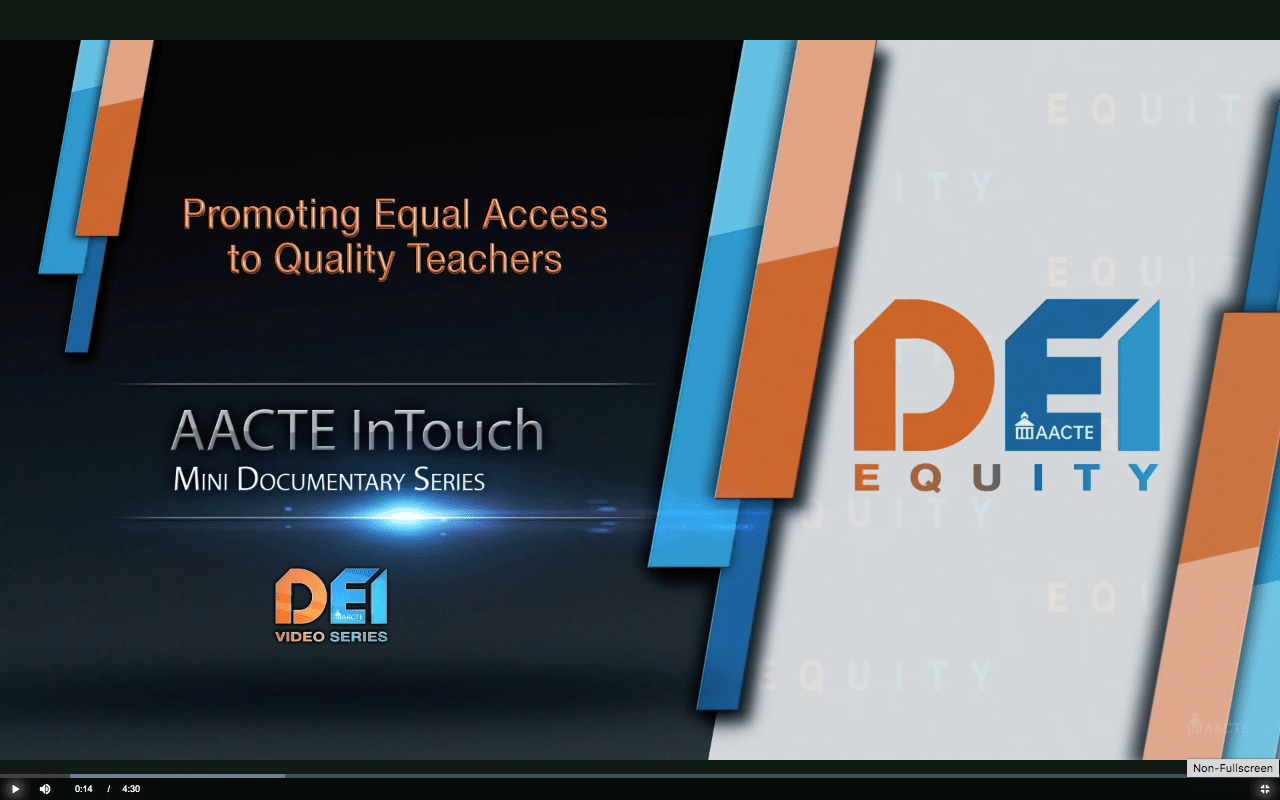
Ed Prep Matters features the “Revolutionizing Education” column to spotlight the many ways AACTE, member institutions, and partners are pioneering leading-edge research, models, strategies and programs that focus on the three core values outlined in the current AACTE strategic plan: Diversity, Equity, and Inclusion; Quality and Impact; and Inquiry and Innovation.
In celebration of National Teacher Appreciation Week, May 4-8, AACTE spotlights “Promoting Equal Access to Quality Teachers,” as the next segment in its Diversity, Equity and Inclusion video series, In this video, AACTE leaders discuss the important role effective teachers have in student learning and achievement, and advocate for poor communities to be given equal access to high quality educators. With the recent disruption in education caused by the coronavirus, several inequities regarding equal access to quality instruction has come to light as well as the important role teachers have in student learning. AACTE members are committed to producing high quality educators for the 21st century learner and strongly believe all students should have access to excellent teachers.
28 Apr2020
By Katrina Norfleet
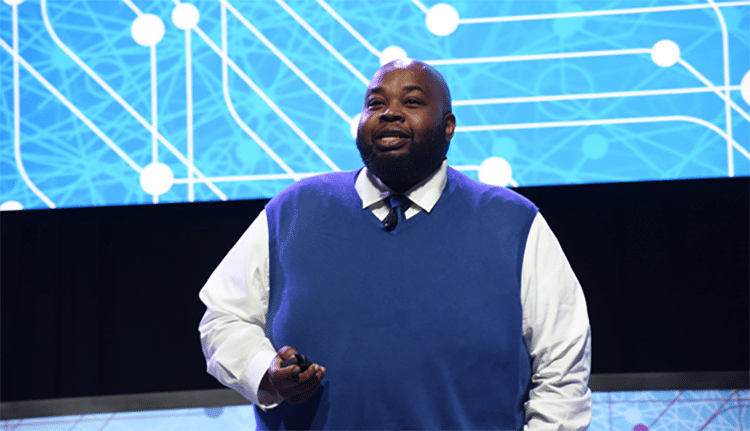
The AACTE 72nd Annual Meeting culminated with a Closing Session keynote address by 2019 National Teacher of the Year Rodney Robinson, a Richmond, Virginia, 18-year veteran educator who has developed programs to prevent students from entering the school-to-prison pipeline. Robinson shared how he uses culturally responsive curriculum and the whole child approach to learning in educating vulnerable students.
In talking about inequity, Robinson spoke about two different types: resource inequity and cultural inequity. During a tour of schools in Southwest Virginia, he noted the differences in resources. “It’s mind boggling. We went to some schools with 21st century buildings, state-of-the-art high-speed internet. Kids were using STEM boxes to plant agriculture, kids were using drones to to study space. And then we would go 30 miles down the road and buildings don’t even have AC, no high-speed internet; one school district didn’t even have text books.” He was challenged to advocate for these types of inequities between rural and urban schools.
24 Apr2020
By Renée A. Middleton
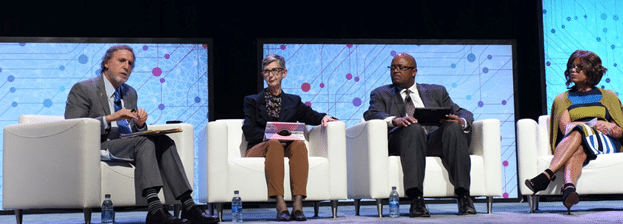
On Feb. 29, my colleagues and I had the honor of delivering the Deeper Dive presentation, “Combating Discrimination and Hatred Through Education,” at AACTE’s 72nd Annual Meeting in Atlanta. This experience was a wonderful opportunity to help deans of education and other educational leaders understand the important role that they play—not only in shaping curriculum, but also in making the world a better place.
Hate exists because people do not understand each other and want to “other-ize.” Well, the most effective way to eliminate hate is through education, and I believe the Deeper Dive presentation underscored that message.
I, along with Rick Ginsberg (University of Kansas), Marvin Lynn (Portland State University), Margaret Grogan (Chapman University), and David Machlis (Adelphi University). presented about the Holocaust—how it happened, why it happened, and how educators should approach this type of subject matter in schools. Connecting the past to the present is not always easy, but it is imperative to prepare students to be active and informed citizens.
21 Apr2020
AACTE DEI Video: The Importance of Equitable Disciplinary Actions in Schools
By Jerrica Thurman
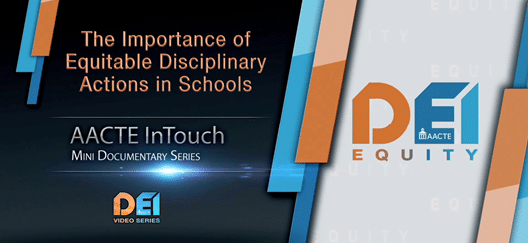
Ed Prep Matters features the “Revolutionizing Education” column to spotlight the many ways AACTE, member institutions, and partners are pioneering leading-edge research, models, strategies and programs that focus on the three core values outlined in the current AACTE strategic plan: Diversity, Equity, and Inclusion; Quality and Impact; and Inquiry and Innovation.
In this segment of the AACTE Diversity, Equity and Inclusion video series, AACTE members promote equitable disciplinary practices for teachers to use as restorative measures to build positive relationships with students. The video segment, The Importance of Equitable Disciplinary Actions in Schools, addresses the importance of eliminating prejudgments so educators can better understand students’ contexts and backgrounds and develop a new lens for addressing disruptive behaviors in schools.
16 Apr2020
By Maria Salazar and Bryant Jensen
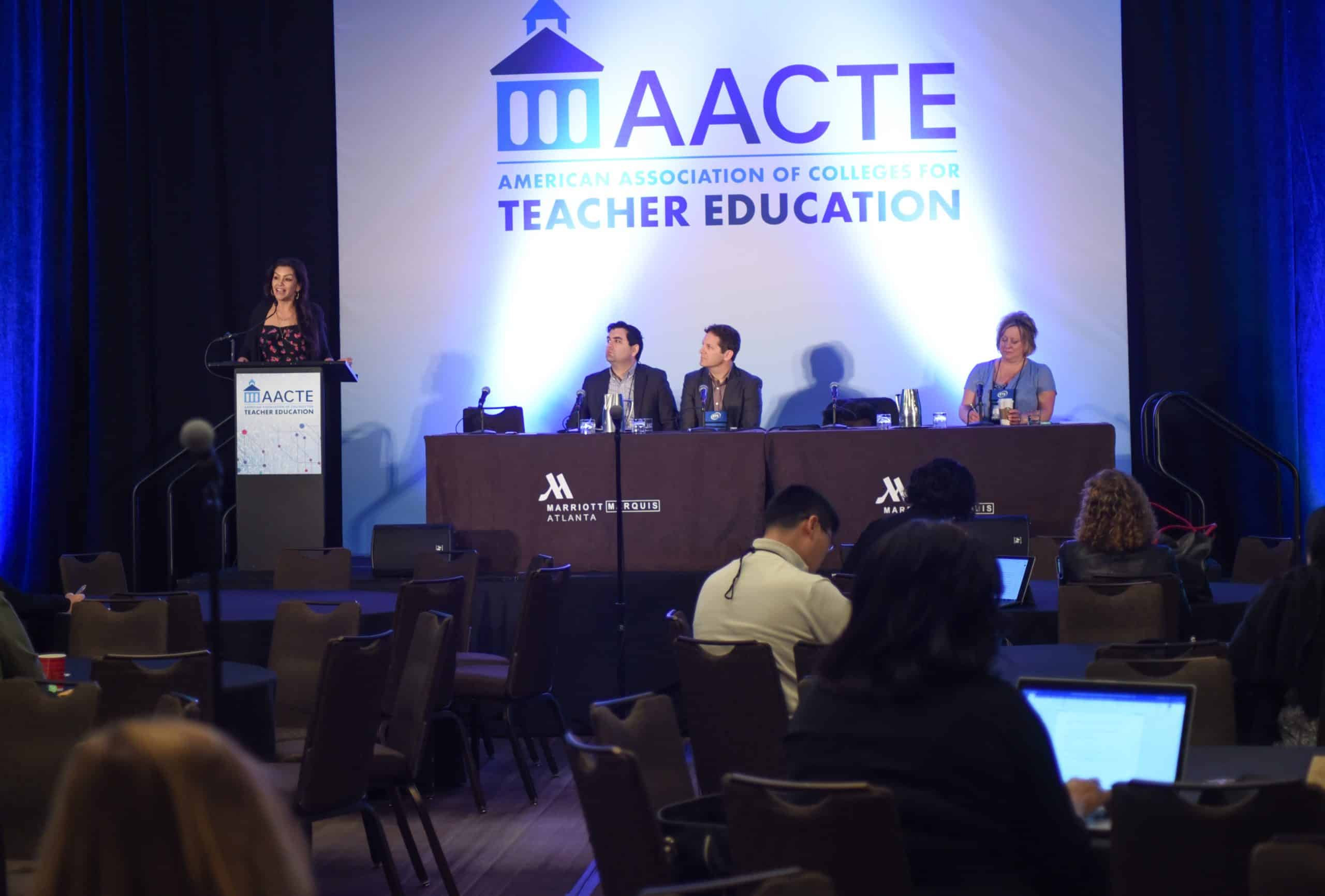
As presenters at the AACTE 2020 Annual Meeting Deeper Dive: Challenges of Immigration and Teacher Education, the authors offer a recap and reflection of the session.
“Quisieron enterrarnos, pero no sabían que éramos semillas” is a Mexican proverb translated as “They wanted to bury us, but they did not know that we were seeds.” This proverb captures the current experience of many immigrants and their children in U.S. society. Immigrants in the United States and around the world are being “buried” under policies and practices that violate their human rights, yet immigrant students and families remain incredibly resilient. Immigrant families draw on sociocultural assets to persevere through setbacks. These conditions have direct implications for teacher education in the U.S. and abroad.
Given the large numbers of immigrants of Latinx descent in the United States, we focus our commentary on Mexican and Mexican American communities. Two-thirds of the U.S. Latinx community is of Mexican origin, and one in seven of all U.S. students in elementary and secondary schools has a Mexican-born parent or grandparent (Jensen & Sawyer, 2013; Passel, 2011). The United States shares many of these immigrant children and youth with its neighbor to the south, México. Indeed, the fastest-growing group of “students we share” between our two countries are U.S.-born students of Mexican heritage living in Mexico and struggling to integrate into Mexican schools (Gándara, 2020).
15 Apr2020
By Carole Basile
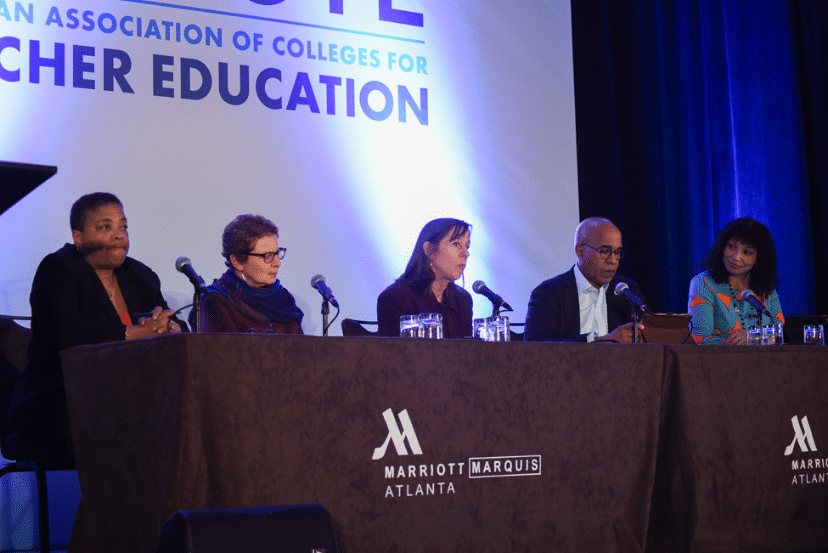
During the AACTE 2020 Annual Meeting in Atlanta, I had the pleasure of serving on the panel of the “Disruptive Deans” Deeper Dive Session along with three fellow deans. Our challenges are disrupting the one-teacher one-classroom model, closing the uneven admissions pathways between community colleges and 4-year institutions, breaking the traditional mindsets of hiring practices, and questioning the biases of traditional learning environments. These are no small tasks.
During the Disruptive Deans Deeper Dive session, the panel covered the following topics:
- “Building the next education workforce”—(I presented this topic.)
- “Designing a clear transfer model in the state of Oregon for community college transfer and increasing the number of teachers of color and bilingual students,” presented by Cecilia Monto, dean, Education and Humanities, Chemeketa Community College.
- “Hiring and retaining faculty of color,” presented by Don Pope-Davis, dean, College of Education and Human Ecology, The Ohio State University
- “Promoting understanding of the social justice imperative of educating teachers to educate all learners including those who are neuro-divergent,” presented by Kimberly White-Smith, dean, LaFetra College of Education, University of La Verne
Our moderator, (also a disruptor) Wanda J. Blanchett, dean, Rutgers University, has led a distinguished career promoting equity and inclusion for all.
09 Apr2020
By Linda Minor

Applications for the 2021 AACTE awards are now open. For most of the awards, programs and individuals can be either self-nominated or nominated by a third party. To submit your nomination, visit AACTE’s online submission site. Entries for the Outstanding Book Award are due May 15 and entries for the Outstanding Dissertation Award are due August 15. The due date for all other award submissions is October 9.
Winning entries will be decided by the AACTE standing committees and recognized formally at the 2021 Annual Meeting, February 26 – 28, in Seattle, Washington.
17 Mar2020
By Jerrica Thurman

The AACTE 2020 Annual Meeting Opening keynote speaker Robin DiAngelo, associate professor of education at the University of Washington, is widely recognized for her research in critical discourse analysis and whiteness studies. In her address, she explored how to implement strategic, intentional anti-racist actions to interrupt the system of racism in education. Her message aligns with AACTE’s core value of diversity, equity, and inclusion an integral part of AACTE’s strategic plan for 2020-23.
“The status quo of this society is racism; it is not an aberration, it’s the norm. All of our institutions effectively and efficiently reproduce racial inequality and schools are the bellies of the beast,” said DiAngelo. She noted that the concept examining the dominant culture is consistently left off the table in the conversation when discussing race issues. These discussions tend to focus on learning about other racial groups.
During her talk, she emphasized the need to decenter “whiteness” by naming it and exposing it, explaining that there is a white worldview, a white frame of reference that allowed her to move through the world from a white experience. DiAngelo shared, “Being white, I was not raised to see myself in racial terms” She reasoned that as a white person, “when we talk about race it’s about their race not mine.” She acknowledged the complexities of racism and the inability to understand every nuance. “But it’s on me to get that information, not on people of color to hand it to us.”
16 Mar2020
By AACTE
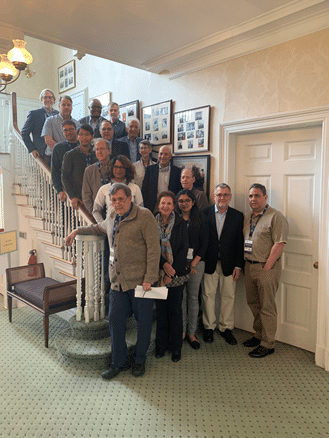 An excerpt from this article appeared in District Administration on March 11.
An excerpt from this article appeared in District Administration on March 11.
Today, we live in a society where truth is decaying, falsehoods are readily shared across social media, and hatred and discrimination are on the rise. According to the Southern Poverty Law Center the number of hate groups operating in the United States hit a record high in 2018. Hate speech creates an environment in which biases and discrimination thrive and can have a detrimental impact on a school’s culture and climate. Teaching and learning about the roots of hate are important elements in fostering an inclusive classroom environment.
Teachers play an essential role in creating a more humane and tolerant world. They are stewards of culture and are in a position to protect history, promote facts and prevent inhumanity. However, to provide students with the most effective instruction, educators must have the tools to understand the nature of hate crimes and how they impact the culture and climate of schools where they teach. Additionally, they must know how to address issues of bias and discrimination in the classroom.
04 Mar2020
By Dustin Wunderlich
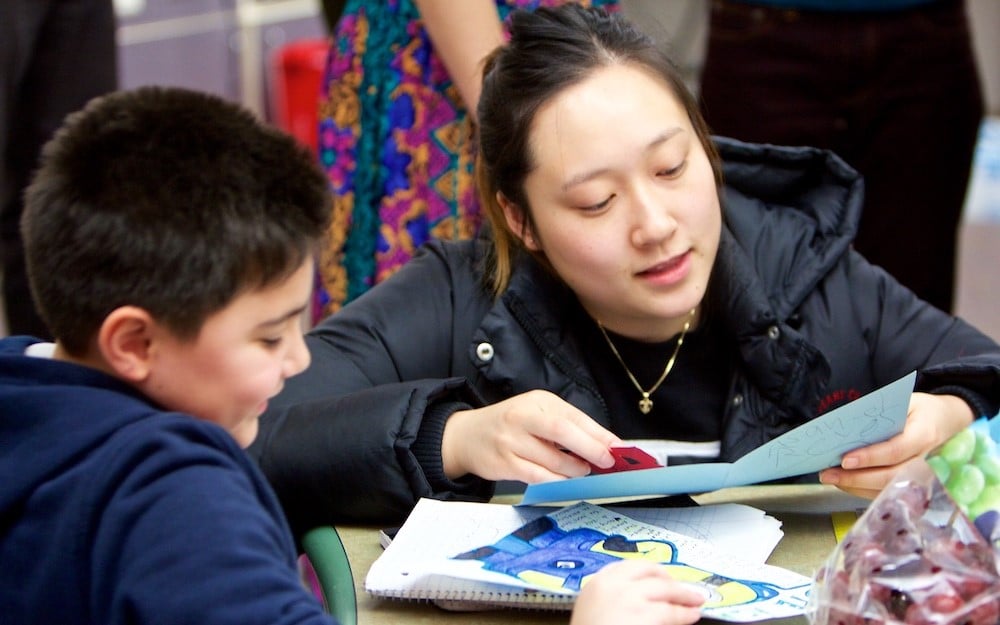
This article originally appeared on the University of Washington College of Education website and is reprinted with permission.
Back in 2017, the University of Washington’s Elementary Teacher Education Program (ELTEP) enrolled its first cohort of teacher candidates in which more than half were people of color and more than half spoke a language in addition to English.
While the diversity of the cohort was welcome — particularly in a state where 89 percent of teachers are white but students of color make up nearly 50 percent of public school enrollment — it also meant UW teacher educators needed to reassess their program.
“When we admitted our first group of very diverse students, I went to the faculty and said ‘We’ve got a gift’,” said Teddi Beam-Conroy, director of the UW’s Elementary Teacher Education Program. “Most efforts [to diversify the teaching workforce] concentrate on recruiting students, and they’re here. So now we have to talk about how we’re going to change to meet their needs. What do we need to do in order to sustain and learn from the students we have with us?”
29 Feb2020
AACTE Conference Addresses How to Disrupt Inequities in Education
By AACTE
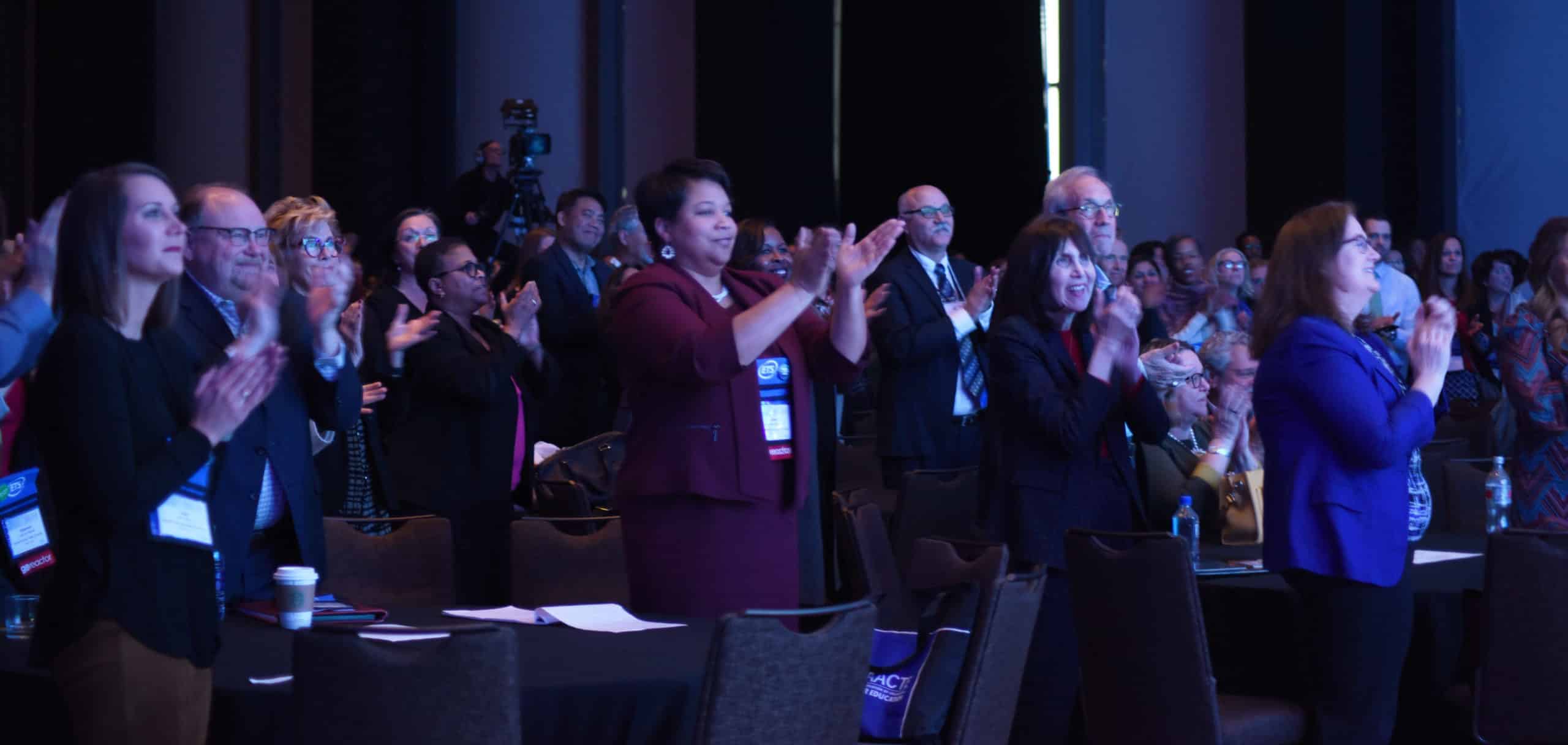
Nearly 2,000 teacher educators kicked off the 72nd Annual Meeting of the American Association of Colleges for Teacher Education (AACTE) at the Atlanta Marriott Marquis yesterday. The conference, themed “Disrupting Inequities: Educating for Change,” is being held February 28 – March 1. Attendees include deans, faculty, students, and administrators from undergraduate and graduate education programs, community colleges, and K-12 schools, as well as representatives from state and federal agencies, nonprofit organizations, and foundations.
America’s educator preparation community is keenly aware of and uniquely positioned to change the systemic challenges occurring in PK-16 environments that serve the nation’s most vulnerable populations—students of color, students with disabilities, students from immigrant families, students from low-income families, and LGBTQ students. Under its 2020 theme, the AACTE conference offers attendees hundreds of concurrent sessions that explore how to redefine the meaning of success for all students and encourage them to become active learners, productive citizens, critical thinkers, and leaders in their communities and across the globe.
26 Feb2020
By Kimberly White Smith

The American education system was not created to support the liberation of the powerless. Instead, it was designed to instill skills, habits, beliefs, and discipline that would allow for better control of the masses. The colonizers who became the architects of this country built a system that perpetuates the status of white-skinned privilege and wealth, while leaving those in the lower and middle classes burdened with the laborious task of building and supporting our nation’s economy and infrastructure.
Throughout the history of the United States, minoritized racial groups and those who live in poverty have suffered disparities in education through laws and policies that prohibited them from socioeconomic advancement, physical safety, and basic civil rights. The anti-literacy laws enacted before, during, and after the Civil War are just one example of how white-skinned privilege and power was used to perpetuate the oppression of enslaved Blacks and concretize a system that generated more wealth for those in power.
Our current education system continues to enable inequity through policies and practices that claim to be fair, colorblind, and neutral, but tend to privilege a small, elite portion of the U.S. population. We can no longer live by the adage “pull yourself up by your bootstraps,” when those who deserve a better education continue to be plagued by disparities. Addressing the persistent opportunity gap between our nation’s socioeconomic classes requires sustained engagement from leaders across every field of education.
21 Feb2020
By Leslie T. Fenwick
This article first appeared in Education Week on October 9, 2013 and is reprinted with permission from the author, AACTE Dean in Residence Leslie T. Fenwick.
There’s a troubling undercurrent to the national conversation about the black-white gap in student achievement. The (mostly) unspoken belief about black students is tied to broader perceptions about black people. So, let’s just say it: Some believe the gap is a function of weak family and community structures, male joblessness, drug use, and permissive cultural values—which they assert predominate in the black community.
Others believe that blacks constitute a community that is largely beyond intervention and that no amount of funding or special programs can fix what ails the perpetually troubled. An attendant assertion is that blacks who do achieve have outsmarted stereotype vulnerability and are outliers. Some say these blacks are exceptions and are successful because they embrace and actualize a white cultural-value system.















 An excerpt from this article appeared in
An excerpt from this article appeared in 

